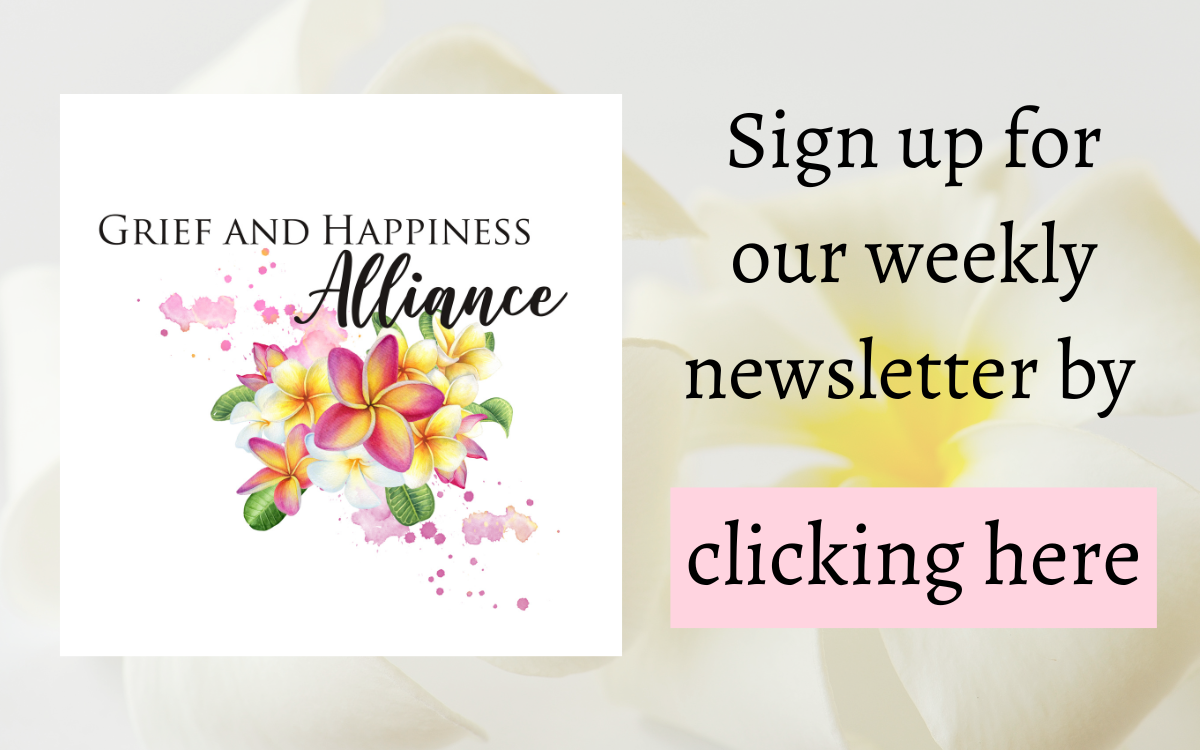
Sometimes I hear a quote that resonates with me, and that happened when I was watching the final episode of This is Us. Someone said “The end is not sad. It’s just the start of the next incredibly beautiful thing.” At the Zoom meeting of the Grief and Happiness Alliance each week we always start by writing about something that has to do with our grief and then we talk about what we write. This quote reminded me of my husbands, so I suggested that we write about it at our last meeting. Thinking of Ron, this is what I wrote:
“Ron transitioned on Friday evening. His friends who had gathered stayed through the weekend before going back to the mainland. They took me along with them to go dancing where one of them played guitar and sang and a singer who is a good friend was singing too. They played every Sunday evening on a patio outside a golf club restaurant where the view of the ocean and the sunset was so beautiful. I sat there in kind of a fog listening to the music that Ron and I used to enjoy dancing to. They played a slow song that was one of our favorites. I closed my eyes, but the silent tears flowed anyway. When the song finished, there was an unusual silence. I opened my eyes to discover the musicians, all our friends, and even people I barely knew had circled around me showing their love and support. I knew then that I was not alone in my grief and was being held up by their love and strength.”
Then just last week I had this beautiful experience. “Last night I went to a jazz and blues concert in support of the Children’s Arts and Education Group, an organization I support because of all the support they have been to Jacques’ granddaughter, (she calls me grandma), and her husband in creating the Maui Jazz Camp. The they played an amazing version of Someday My Prince Will Come. I closed my eyes, and my husbands, Jacques and Ron, both appeared in my mind. I danced with them both, one at a time. We swirled, and dipped, and smiled. The dancing was magical. They both were so strong and handsome. I felt the presence of them both and their love and their support. A profound experience and I am grateful.”
Recalling incredibly beautiful moments can bring you warm smiles, and maybe a few tears. And they can remind you of the wonder of loving someone, or two, so deeply.
Get your Awaken Your Happiness Journaling Guide at no charge by clicking here: https://www.griefandhappiness.com/pl/2147595767
You can join the Grief and Happiness Alliance which meets weekly on Sundays by clicking here: https://www.griefandhappiness.com/offers/ytK7eLBa
You can order Loving and Living Your Way Through Grief by clicking here at Amazon.
You can listen to my podcast, Grief and Happiness, here. https://podcasts.apple.com/us/podcast/loving-and-living-your-way-through-grief-with/id1509589686?i=1000535381763





